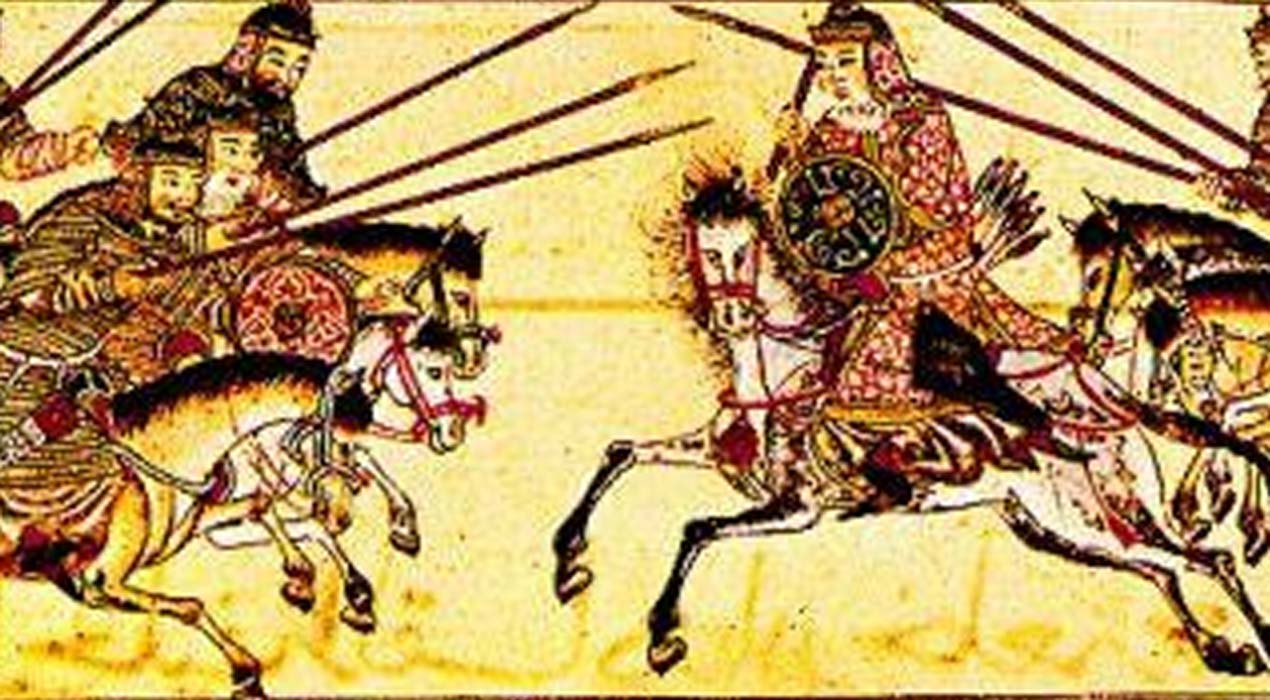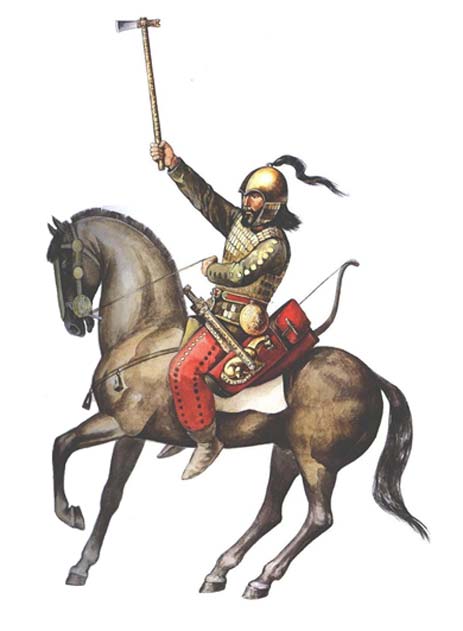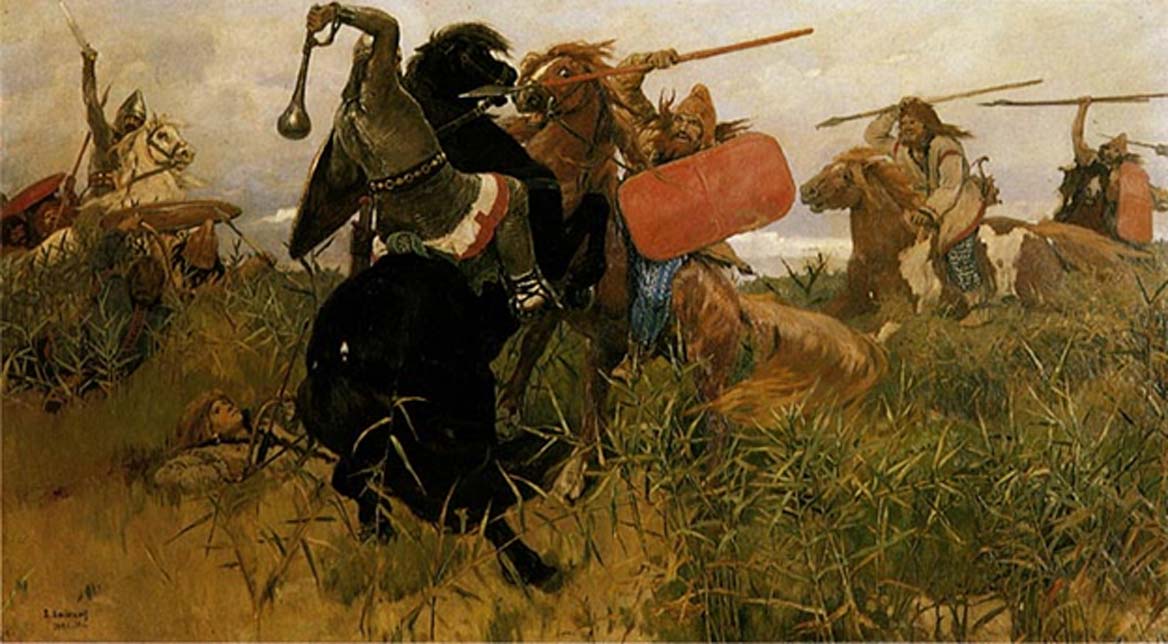
Call in the Cavalry: Famous Cavalries of the Ancient World
‘Call in the Cavalry’ has become a proverb for reverting to damage-control expert assistance when things get out of hand. Yet the quote is embedded in the history of a noble and often elite unit originally formed to provide support to the infantry. Before the tank bulldozed its way into the annals of military history, there was the cavalry; the horse and its rider. Like every modern nation today, ancient kingdoms also had some kind of mobile land support, designed to punch holes through enemy lines, but only a handful of nations had the best trained cavalry, and their reputations withstood the test of time.

Warrior of Scythians, second part of VII and VI century BC (CC BY-SA 3.0)
The Scythians’ Light Cavalry
The Scythians (present-day Ukraine) may not have been the original inventors of asymmetrical warfare, but one could argue that they perfected it. The Scythians were ancient nomadic horse warriors who were first mentioned by the Assyrians during the reign of Sargon II (722 – 705 BC). What made these horsemen so powerful was that they were raised in the saddle and they used a very distinctive bow.
Their weapon of choice was the composite bow. The Scythian and Cimmerian bows were unique and revered throughout the ancient world by kings, historians, and a philosopher. King Esarhaddon of Assyria had a Cimmerian bow, the Babylonian armies of Nebuchadnezzar II and Nabonidus were equipped with their bows and arrows, and even Hercules’ Greek portrait displays him armed with a Scythian bow. The Greek philosopher Plato, commented: “The customs of the Scythians proves our error; for they not only hold the bow from them with the left hand and draw the arrow to them with their right, but use either hand for both purposes.”

Battle between the Scythians and the Slavs by Viktor Vasnetsov. (1881) (Public Domain)
When one examines the Scythian lifestyle, one can easily gain an understanding of the type of warfare they employed as opposed to the more sedentary (non-migratory) people, like those in Mesopotamia. The Scythian adopted a guerilla approach to warfare as their method, not to be confused with terrorism. The term ‘guerrilla warfare’ means irregular warfare and its doctrine advocates for the use of small bands to conduct hit-and-run military operations. Herodotus mentions their method of warfare when King Darius of Persia campaigned against them: “It is thus with me, Persian: I have never fled for fear of any man, nor do I now flee from you; this that I have done is no new thing or other than my practice in peace. But as to the reason why I do not straightway fight with you, this too I will tell you. For we Scythians have no towns or planted lands, that we might meet you the sooner in battle, fearing lest the one be taken or the other wasted. But if nothing will serve you but fighting straightway, we have the graves of our fathers; come, find these and essay to destroy them; then shall you know whether we will fight you for those graves or no. Till then we will not join battle unless we think it good”.
- A Warrior’s Face Frozen in Time, Gold, Hemp, Tents and Cheese Tell the Scythian Tale
- 2,200-Year-Old Moat with Artifacts Linked to Hannibal Unearthed in Spain
- The Battle of Carrhae: A crushing defeat of the unstoppable Roman juggernaut by the Parthian Empire
The description indicates that the Scythians against whom Darius was warring had no center of gravity. King Darius’ military campaign into Scythia failed as he could not catch them, and the Scythians burnt their own their fields, destroyed Persian supplies, and harassed his forces with their hit-and-run tactics. In the end, Darius was forced to turn his large army around and head home before it was annihilated.
The Numidians’ Light Cavalry
The Numidians were a people from Numidia (present-day Algeria) and were famous for their cavalry abilities to such an extent that Hannibal deployed the Numidian cavalrymen during the Second Punic War.





